When I first started writing I was in my forties, and I couldn’t imagine needing any antidote for that activity.
The discovery of this long-hidden talent brought a deep satisfaction different than anything I’d known.
Writing was the antidote to a falling-apart marriage and the trials of two teenage daughters. Then, not long after, a divorced mother of two and employed, I had to get up at 5:00 a.m. to write.
Today, that sounds like a terrific physical challenge, but I don’t remember it that way. It was a compulsion. During both of these periods, I now realize, the antidote to writing was built in. The demands of life brought me out of that place we go when we write and reconnected me.
Now, after thirty years of squeezing writing in among the demands of teaching, I’m retired and have time to write myself out. And now I realize the need for antidotes.
Learning to Quit
When I write, I engage totally with my characters and emerge isolated and detached from those around me. That’s a hazardous state, emotionally and physically, because I’ve burned out at the keyboard. I’m drained and have nothing left to give.
Now I’ve learned to monitor my own emotional state. First, I know that after three hours, my muse is largely spent for the day. What I write beyond that is likely to be thrown out the next day.
I’ve learned to quit.

Animals Cure Almost Everything
Secondly, I’m fortunate to share a home with a good friend and three basenjis, all anxious for me to reconnect. Animals are a cure for almost everything.
My good friend gives me room to write, which I appreciate, but doesn’t understand why I do it. Many of us, I think, live with such loved ones and need to understand the cost of our disconnection.
We suffer from lack of understanding without realizing the cost to others. We’ve given emotionally elsewhere—like having a lover.
I know now that those life demands of my early writing life were essential, and I now, in this less demanding time, need to replace them.
For me, habit is the answer.
Good Habits Keep Me Fit
Fortunately, in a generation of women taught to be sedentary, I was a tomboy and rebel. I’ve always been active, so my body demands activity even when my brain does not.
Now my good friend has taken up exercise, so we go off to the gym to swim or workout at noon. And the dogs—great creatures of habit—demand their walk (a mile or two) before or after dinner, depending on the season.
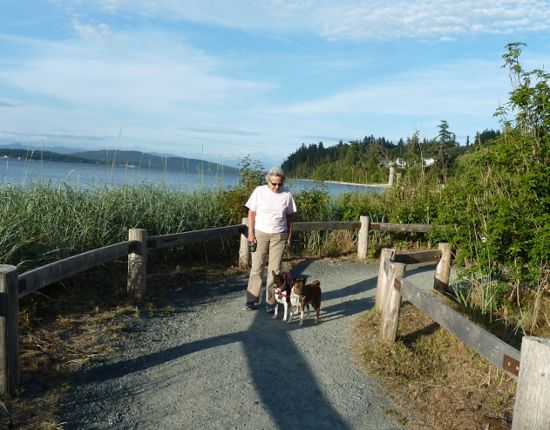
These habits keep me fit—a critical antidote to those computer hours, but more than that—they keep me aware of the importance of my friend and the dogs in my life. Finally, they reconnect me to the beauty of the place I live. They keep me vital.
The Realization that One Has to Market
Without them, the rollercoaster of a writing career would probably do me in. Repeated rejection is hard to take, and for years I dreamt of that golden acceptance.
I floated for months when it came, and then realized I really did, after all, have to learn to market.
It’s one thing to persist in something you have a talent for, another to devote hours to something that challenges your very make-up.
I haven’t yet conquered that one, and every day I ask whether it’s worth it.
I remind myself that I once asked that about writing.
I Queried Small Presses Instead of Agents
I’d tried for ten years to find an agent, watched others succeed, watched self-publishing flourish and traditional publishing become tougher by the day. I very nearly gave it up.
At that point, interacting with other fresher, newer writers was key, for I discovered I was in a dead-end rut. I was not writing what the mass market was demanding and needed to change gears.
I started querying small presses instead of agents and had a contract within a few months.
Fear of Exposure and Self-Doubt: The Twin Witches
Membership in writers groups has been the spur to my development as a writer all along—writer friends, writers’ workshops, meetings, and a good critique group.
The last is the most important. They gave me maturity—the ability to look critically at my work because they respected it. The company of others similarly engaged is critical, because understanding and respect for what you are trying makes it easier to expose your work.
And writing is exposure—the first hurdle to any writing career.
Fear of exposure and self-doubt are the twin witches of a writing career, as is the consequent writers’ bloc. I think my engagement with others has been my best defense against them because I don’t think about my writing when I’m not at the keyboard or a writers meeting.
My second defense is, again, habit. I go to the keyboard every morning before I’m fully connected to my other life. For others, it’s after everyone is in bed. But it’s the time of day you write. For me, ideas come after I reengage with my characters and not until then.
Advice to a Young Writer: Learn When to Stop
My advice to writers, novice and veteran, is to make writing a daily habit and treat the rest of your life as a necessary antidote.
Learn when to stop and re-engage with it.
Physical exercise burns off that disconnected feeling, that burn-out, and puts you in touch with your loved ones. Make that a habit, too.
Animals help a lot because they love habit.
Third, engage with other writers. Go to meetings, workshops, etc. until you find congenial critique mates who will give you honest feedback.
All of these give the muse a rest—time to recharge.
Then when that happy day comes and you’re published, you can face the exposure of marketing to strangers. I’m sure the answer is habit again, but my being resists. And now it’s noon, so I’m off to the swimming pool.
Good luck to you all. Keep your balance.
* * *
Originally from Chicago, Judith Kirscht raised her family in Michigan and taught writing at the Universities of Michigan and California, Santa Barbara, before moving to Washington State to devote herself to writing fiction. She has previously published Nowhere Else to Go (Florida Academic Press, 2011), The Inheritors (New Libri Press, 2012), and Home Fires (New Libri Press 2013).
Home Fires was a finalist for the Nancy Pearl Award, given by the Pacific Northwest Writers Association for the best mainstream novel published in 2013, and a finalist for the Readers Favorite Review 2014 Awards in the general and realistic fiction categories.
For more information on Judith and her work, please see her website and Amazon Author page, or connect with her on Facebook, Twitter, and GooglePlus.
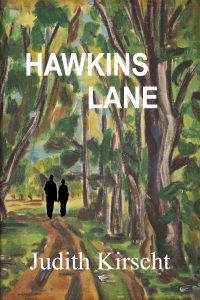 Hawkins Lane: Son of a murderer, Ned Hawkins has resigned himself to an outsider’s existence until he meets Erica Romano, daughter of the town’s new doctor.
Hawkins Lane: Son of a murderer, Ned Hawkins has resigned himself to an outsider’s existence until he meets Erica Romano, daughter of the town’s new doctor.
Their love of the mountains overcomes their dissonant background, and they fall in love and create a life for themselves as forest rangers in the North Cascades—until the release of Ned’s father from prison disrupts the harmony.
Ned’s renewed fatalism sets off a chain of disasters that bring both face-to-face with the destructive power of their pasts and throw their future into doubt. Available at Amazon.
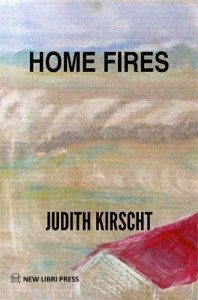 Home Fires: Myra Benning gazes across the meadow to the sea and the Santa Barbara Channel Islands beyond, unbelieving that she, awkward daughter of the Minnesota prairie, could have ended up in such a place—and with the love of a successful husband and two beautiful children to boot.
Home Fires: Myra Benning gazes across the meadow to the sea and the Santa Barbara Channel Islands beyond, unbelieving that she, awkward daughter of the Minnesota prairie, could have ended up in such a place—and with the love of a successful husband and two beautiful children to boot.
Little does she know, her golden world is about to collapse. Faced with her husband’s infidelity, she is driven to decisions that carry her family into the murky underbelly of the idyllic Benning family surface. She is soon unsure of what is real, what’s happening, and who is guilty of what.
Available at Amazon and Barnes & Noble.
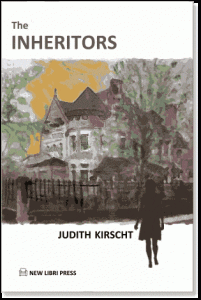 The Inheritors: Raised in Chicago’s Latino working class community during the Sixties, Alicia Barron uncovers her mother’s Caucasian roots when she inherits a time-worn mansion, the remnant of the estate of a Chicago industrialist who, she discovers, is her grandfather.
The Inheritors: Raised in Chicago’s Latino working class community during the Sixties, Alicia Barron uncovers her mother’s Caucasian roots when she inherits a time-worn mansion, the remnant of the estate of a Chicago industrialist who, she discovers, is her grandfather.
Her search of the house takes her into the lives of past generations of women whose love carried them across forbidden boundaries, and into the conflict of class, nationality, and race that is the history of the city itself.
The identity she finds there, however, leads to increasing conflict with her first great love, Ricardo Moreno, who wants Alicia to reject her gringo roots.
Available at Amazon and Barnes & Noble.
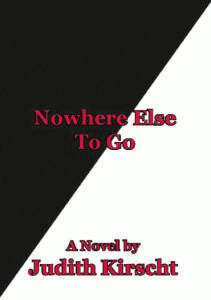 Nowhere Else to Go: As the racial and civil upheaval following the assassination of Martin Luther King tear apart the Midwestern college town of Norton Bluffs, white Principal Cassie Daniel’s junior high school becomes a battleground for suburban fear, university idealism, and black anger.
Nowhere Else to Go: As the racial and civil upheaval following the assassination of Martin Luther King tear apart the Midwestern college town of Norton Bluffs, white Principal Cassie Daniel’s junior high school becomes a battleground for suburban fear, university idealism, and black anger.
Shaped by the integrated backwater where she grew up, Cassie must fight not only the racial and class attitudes that split her faculty, but also the idealism of her own husband in order to defend the children from that same neighborhood, whose adolescence is being consumed by the conflict.
Available at Amazon.


Judith, Hooray for the small press! Being part of one myself I think they are the biggest secret in publishing today. Many writers think their choice is between getting an agent or self-publishing and overlook the many small traditional publishers that are eager to find work by talented, committed authors as yourself.
I’m very familiar with Anacortes, Washington as my in laws lived near there for years. I used to walk on the roads of Friday Harbor and think how wonderful it would be to live on this island and write full time!
Thanks, Judith! You’re so right, animals are a cure for almost everything. Especially sedentary living and disconnection from the real world while writing! I call it the “writing coma” when I disappear into fiction. But my dogs don’t let me stay there too long!